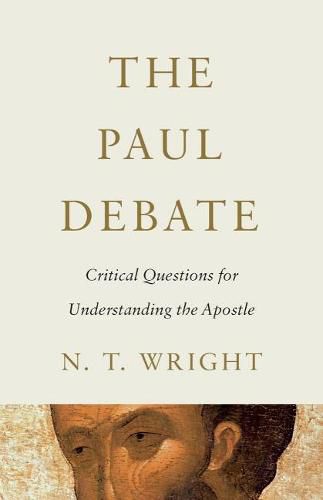Readings Newsletter
Become a Readings Member to make your shopping experience even easier.
Sign in or sign up for free!
You’re not far away from qualifying for FREE standard shipping within Australia
You’ve qualified for FREE standard shipping within Australia
The cart is loading…






This title is printed to order. This book may have been self-published. If so, we cannot guarantee the quality of the content. In the main most books will have gone through the editing process however some may not. We therefore suggest that you be aware of this before ordering this book. If in doubt check either the author or publisher’s details as we are unable to accept any returns unless they are faulty. Please contact us if you have any questions.
In the last two decades N. T. Wright has produced a succession of connected volumes that explore the nature and origins of Christianity. Wright has consistently argued that Christianity, while indebted to Second Temple Judaism, represents an explosive new development. With major books on method and background, Jesus, and the resurrection already in print, in Paul and the Faithfulness of God, Wright added a comprehensive study of the Apostle to the Gentiles.
Wright’s Paul, as well as his reading of Christianity, is not without its detractors. In The Paul Debate, Wright answers his critics. The five chapters represent a response to the five most questioned elements of his understanding of Paul. The first chapter takes up the question of Paul’s theological coherence, particularly the way in which his Jewish context, and the story about Israel he inherited, interacted with what he came to believe about Jesus, a Christological story. Chapter two follows on by tackling the debate over the background, origin, and implications of Paul’s Christology. The third chapter addresses the questions of covenant and cosmos, narrative and apocalyptic. Chapter four focuses on the debate over Paul’s view of who constitutes the people of God; this chapter also addresses the question of whether justification belongs to Paul’s soteriology or his ecclesiology, or somehow to both. The final chapter then traces debates about method, both Paul’s and ours, as well as questions of discovery and presentation, again, both Paul’s and ours.
The Paul Debate is essential reading for those who both agree and disagree with Wright, and for all who want to understand the compelling voice of one of the most productive and widely read scholars in past decades.
Not for sale in Europe.
$9.00 standard shipping within Australia
FREE standard shipping within Australia for orders over $100.00
Express & International shipping calculated at checkout
This title is printed to order. This book may have been self-published. If so, we cannot guarantee the quality of the content. In the main most books will have gone through the editing process however some may not. We therefore suggest that you be aware of this before ordering this book. If in doubt check either the author or publisher’s details as we are unable to accept any returns unless they are faulty. Please contact us if you have any questions.
In the last two decades N. T. Wright has produced a succession of connected volumes that explore the nature and origins of Christianity. Wright has consistently argued that Christianity, while indebted to Second Temple Judaism, represents an explosive new development. With major books on method and background, Jesus, and the resurrection already in print, in Paul and the Faithfulness of God, Wright added a comprehensive study of the Apostle to the Gentiles.
Wright’s Paul, as well as his reading of Christianity, is not without its detractors. In The Paul Debate, Wright answers his critics. The five chapters represent a response to the five most questioned elements of his understanding of Paul. The first chapter takes up the question of Paul’s theological coherence, particularly the way in which his Jewish context, and the story about Israel he inherited, interacted with what he came to believe about Jesus, a Christological story. Chapter two follows on by tackling the debate over the background, origin, and implications of Paul’s Christology. The third chapter addresses the questions of covenant and cosmos, narrative and apocalyptic. Chapter four focuses on the debate over Paul’s view of who constitutes the people of God; this chapter also addresses the question of whether justification belongs to Paul’s soteriology or his ecclesiology, or somehow to both. The final chapter then traces debates about method, both Paul’s and ours, as well as questions of discovery and presentation, again, both Paul’s and ours.
The Paul Debate is essential reading for those who both agree and disagree with Wright, and for all who want to understand the compelling voice of one of the most productive and widely read scholars in past decades.
Not for sale in Europe.